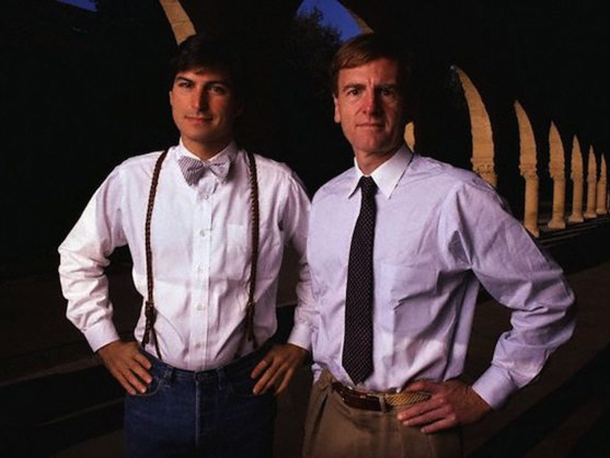Ex-Apple CEO: Innovation doesn't live on democratic leadership

SINGAPORE--Innovation cannot emerge in a democratic environment and high-tech companies must be prepared to tread the thin line between success and failure.

Former Apple CEO John Sculley said the most interesting opportunities for disruptive innovation happen at transformational moments and these usually occur at the highest level of risk. "There's a very thin line in high tech between success and failure," he said, pointing to how companies such as IBM and Intel had almost gone bankrupt in their respective corporate history.
Sculley was speaking here Wednesday at the CIO Executive Summit hosted by Singapore's IT Management Association, which has over 400 members who are IT managers and CIOs from various industry sectors.
Sharing lessons he had learnt from spending 30 years in Silicon Valley, Sculley said disruptive innovation does not exist in an environment built on consensus. "There's no democracy in successful high-tech companies and it's actually pretty good when you have a quality leader. These are founders, and founders have a special position.
"In most cases, they are given benefit of doubt and the chance to be able to make big decisions, and people trust their judgment. It doesn't mean every decision they make is a good decision, but Silicon Valley doesn't live on democratic leadership," he explained, citing Steve Jobs, Facebook's Mark Zuckerberg, Amazon's Jeff Bezos, and Google's Larry Page as examples of non-democratic leaders.
He also noted the acceptance of failure as another necessary trait in innovation, and the reason why Silicon Valley was unique because it gave entrepreneurs "permission to fail". This culture and acceptance of failure, he said, was still lacking in Asian markets and the reason why countries such as India have yet to produce a Facebook or Google. "In many parts of the world, if you fail, you're finished."
Speaking to the local media after his speech, though, he noted the "extraordinary" talent in Asia as well as the region's increasingly important role in the global high-tech industry today, with successful products created outside of the United States. However, he pointed to a major limiting factor in Asia's top-down model where the education system looks for perfection. Graduates of universities from Asian culture tended to be the best students in class, but the leaders of high-tech companies often were college dropouts or were not very successful students, he noted.
"But they are motivated by the desire to have a passion about changing the rules. While Asians played by the rules, entrepreneurs of the West were about breaking the rules," he added. "It's a cultural issue, and clearly not a talent issue."
Many 'prejudices' in the world today
ZDNet asked about the impact of a company's nationality on taking innovation to a global marketplace, in light of strained relationships between countries, specifically, the U.S. and China. Sculley said it was in both nations' best interest--as economic superpowers--to figure out a way to get along.
"Unfortunately, there are a lot of prejudices in the world," he said, noting the U.S. prejudice that China was stealing its secrets and intellectual property, while China believed the U.S. was trying to impose its democratic model on the rest of the world, even if the rest of the world did not want it.
"I can appreciate the points of view of both nations, but the reality is we're increasingly living in a world where boundaries of nations are becoming less and less important. And in a world of digital communications, you can easily cross borders in ways that were inconceivable when those nations were created.
"Maybe this is a problem that will solve itself...in a hundred years," he quipped.
Asked if countries such as Singapore should focus on specific technology segments such as software or security to drive innovation, he noted the lack of guaranteed success from being selective. Singapore, for instance, had decided to focus on stem cell research some years back, investing in the biosciences industry and bringing in experts from overseas. However, the country failed to produce any success story in stem cell innovation, he said.
"It doesn't always work, that you can pick a winner. What if you pick the wrong one?" Sculley noted. "That's not how Silicon Valley works. Silicon Valley is constantly adapting. No one is in control but everyone participates. When something like social media looks like it's going to be important, you'll start to see a flurry of innovation take place. But no one planned it. I'm not a fan of governments trying to pick the winners. You have to let it come up from the bottom."